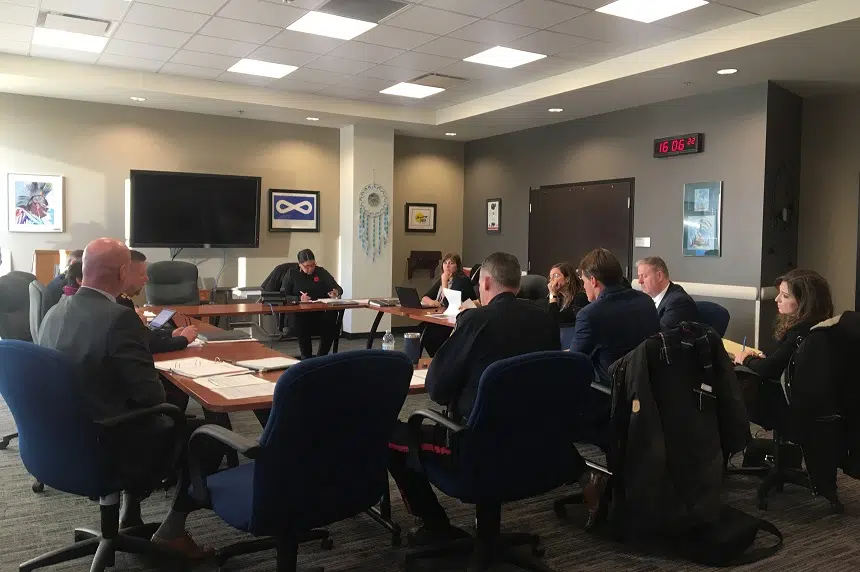Saskatoon police chief Troy Cooper offered up plenty of explanation during a special meeting with the Saskatoon Board of Police Commissioners on Thursday to address the Evan Penner arrest video that surfaced earlier this week.
One of the first things discussed in the roughly 55-minute meeting was the nature of the call received by police. Cooper reiterated that officers were sent to a home on the 500 block of 11th Street East last Saturday for a report of a suspicious person using a garden hose to wash himself.
The Indigenous Joint Action Coalition, which posted the video of Penner’s arrest, referred to the call as a “mental health and wellness check” multiple times in its Facebook post. Cooper explained the series of events of the arrest and explained the difference between a wellness check and a suspicious person call.
A struggle ensued once the lone officer responding to the call tried arresting a man later identified as Penner. Cooper said the man grabbed the officer’s Taser and opened the officer’s duty belt. That’s when the officer used pepper spray on the man.
The video that has been widely shared began recording after the pepper spray was used. At one point, Penner got a hold of one of the officer’s ammunition magazines and tried to strike him with it.
Penner is charged with assault with a weapon (the ammo magazine), attempting to disarm an officer of his Taser and mischief.
In total, 19 emails from the public were received as information with many calling for disciplinary measures on all of the officers involved, not just the initial officer who responded. There were also several letters saying anti-police rhetoric is unwanted.
Board chair Darlene Brander explained that the board’s purpose isn’t to discipline officers. That is up to the Saskatchewan Public Complaints Commission, a five-person body appointed to the government that is already investigating the incident.
“If they come back with any recommendations, then we will address those at that time,” she said.
Most board members voiced support for patience and reserved judgement until the complaints commission’s findings are revealed.
“As long as we’re going to send police officers into dangerous situations while we (walk) away from them, there does need to be an acknowledgement that won’t always look neat and tidy on TV or video,” Commissioner Randy Donauer said during the meeting.
“I’m not going to pre-judge whether the officer’s actions were correct or not, but I’m going to ask that the public not do that and let the process run its course.”
A series of questions posed to Cooper during the meeting dealt with the city’s Police and Crisis Team, a partnership with the Saskatoon Crisis Intervention Service and the Saskatchewan Health Authority’s Mental Health and Addiction Services that pairs an officer with a mental health professional.
Cooper said services like those are under constant demand, especially with a recent spike in drug-related calls to police recently.
“Not only are we seeing people that are intoxicated by the drug, but over time it impacts their mental health,” Cooper said.
“There’s some real value in treating a social issue like a social issue rather than trying to use some of our structures like justice or even health care to address things that might not be most appropriate.”
Cooper said the last two months have been the highest two-month period of crystal meth usage in the last five years, and he believes that adds to the strain of the mental health of the community.











